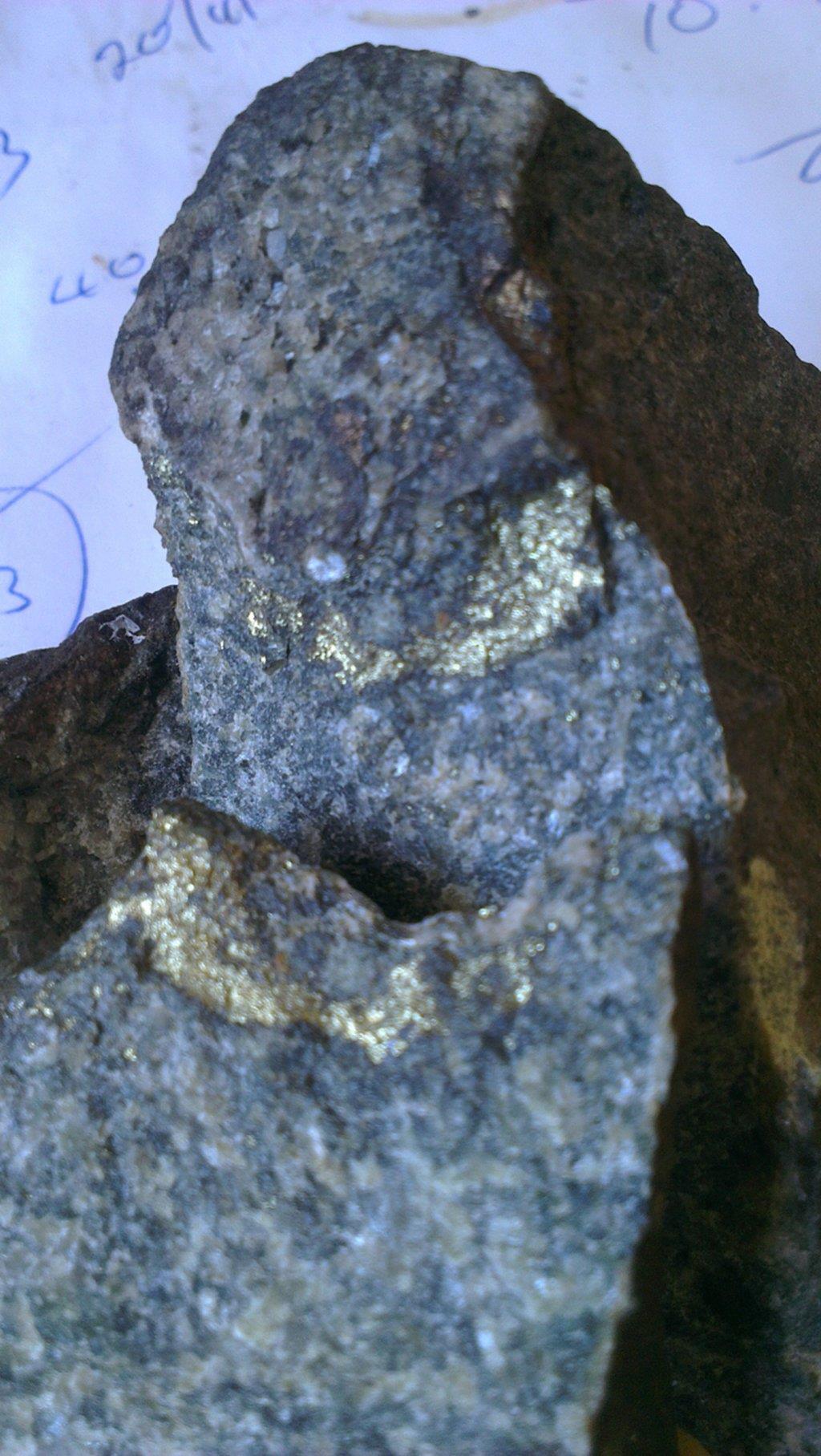G'day all, Just thought I'd try and pick some brains out there. Must be a lot of experience amongst the forum members so maybe you can give me some thoughts.
Mate and I are sussing out a possible small mining claim here in Qld. It will be alluvial mining with perhaps shafts to 40ft. Attached picture is a sample I picked off the top of a mullock heap, a little blurry but you get the idea. Only a small piece but I cracked it open after seeing a little colour on the outside. I am going to dolly up the pieces and pan off the results to get an idea of what we could be looking at.
Given the history of the area, this sample will probably have some silver in it. My question is - what methods would you blokes advise for extracting the gold from the final wash? Obviously we have the usual practice today of cyanide leaching, and there are other chemical methods of achieving our aim. I don't have a personal problem with using chemicals because I already do so in recovery of gold from e-waste. They are not very nice substances but handled properly, they give excellent results and are really quite safe to use if you follow all the correct procedures including safety.
This is all a little way down the track as yet, but forward planning is an essential part any future business enterprise.

Mate and I are sussing out a possible small mining claim here in Qld. It will be alluvial mining with perhaps shafts to 40ft. Attached picture is a sample I picked off the top of a mullock heap, a little blurry but you get the idea. Only a small piece but I cracked it open after seeing a little colour on the outside. I am going to dolly up the pieces and pan off the results to get an idea of what we could be looking at.
Given the history of the area, this sample will probably have some silver in it. My question is - what methods would you blokes advise for extracting the gold from the final wash? Obviously we have the usual practice today of cyanide leaching, and there are other chemical methods of achieving our aim. I don't have a personal problem with using chemicals because I already do so in recovery of gold from e-waste. They are not very nice substances but handled properly, they give excellent results and are really quite safe to use if you follow all the correct procedures including safety.
This is all a little way down the track as yet, but forward planning is an essential part any future business enterprise.




